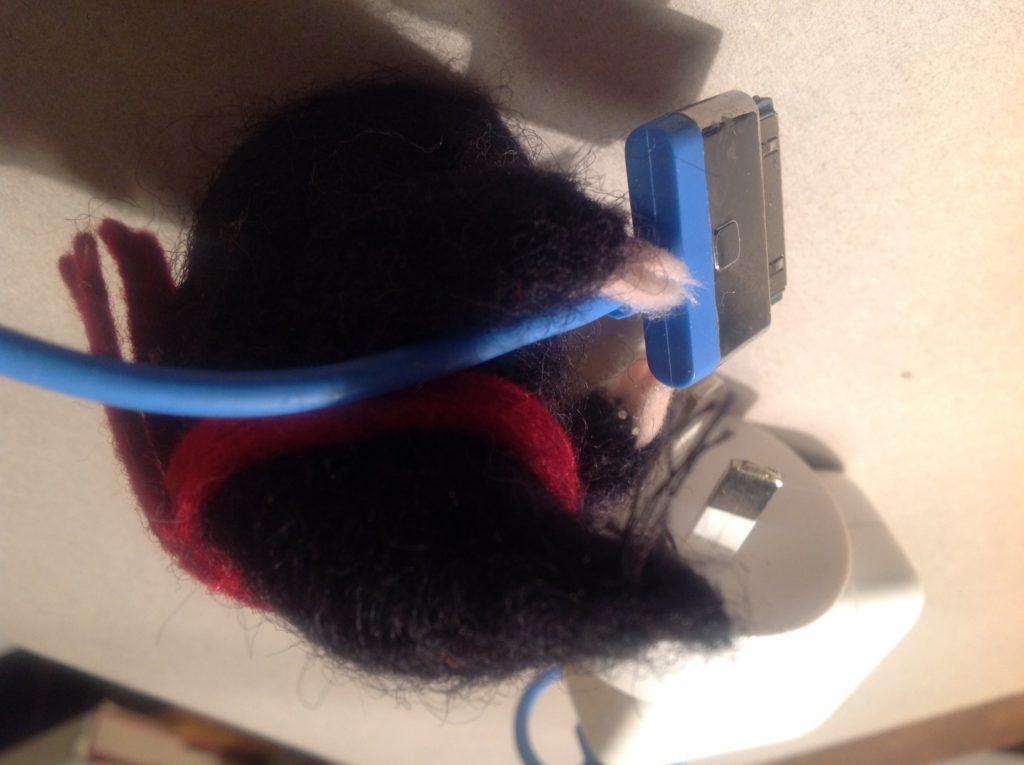When I mosey down to my letterbox this morning I am almost blown off my hindlegs. The weather is wild today – snow on the mountain: a hiccup in the progress of spring, a treat for those of us whose heart is in winter but whose seasons are heading towards summer. I am taken back to the weeks of blizzard that swept through Europe some seven years ago, I was staying at the parental burrow, and while much of Switzerland hunkered indoors and dreamt of Sicily I, hardly believing my good fortune, rugged up and braved the elements.
It was dark when I left the burrow and I’d barely reached the garden path before my spectacles fogged up. Snowflakes settled on the lenses. Had I not trodden this route thousands of times before I might have regarded the adventure with more trepidation. But the lack of vision allowed me allowed me to imagine my surroundings the way they had been when I was a nipper more easily almost than how they were now. The flats on the corner dissolved returned to the paddock belonging to an elderly horse called Nobu; the derelict Hotel Krone returned to its prime and opened its skittle alley for wee moles on Sunday afternoon outings; the shopping and residential complex dissolved into the orchard that had surrounded the Waisenhaus whose orphans came to school wearing scratchy grey stockings.
Much of the time it was completely silent apart from the crunch of my paws underfoot, a moped or two, skidding and spluttering, the occasional rumble of the blue train.
Hearing the blue train, imagining it lit up with night workers returning home, reminded me of another cold winter’s night when Great Uncle Mole had taken me to a reunion of retired railway postal workers. It was held in an and old unheated Nissan hut that had been a sorting office during the war, and might have been a miserable affair had they not supplied us with hot toddies (even me, a mere nipper) and, on a rigged up screen, projected that wonderful 1936 documentary Night Mail. There were cries of ‘Cor! Remember those hoists’, and ‘Look at the face on old Harrison, always was a sour bugger’, and ‘Poor old Cecil, bit the dust in the Blitz’.
Now, or rather some seven years ago, on my nocturnal walk through the blizzard, it was the W H Auden’s poetic script for that film that was accompanying me. Its rhythm matched the sound of the night mail train running over points and somehow it was now infusing my hindlegs:
‘In the farm she passes no one wakes / But a jug in the bedroom gently shakes.’ Or the hypnotic recounting of the kinds of letters being sorted on the train:
‘Receipted bills and invitations
To inspect new stock or visit relations,
And applications for situations
And timid lovers’ declarations.’
Or
‘The chatty, the catty, the boring, adoring,
The cold and official and the heart’s outpouring,…’
I was still walking this rhythm when I reached what had once been acres of allotments that allowed the residents of the neighbouring *Arbeiter Quartier to grow their own vegetables. It would have been poorly lit then, but now the streetlights were closer together, not floodlighting the building which emerges from the earth that had once nurtured cabbages and potatoes, but emphasising its importance. Adorned with the flags of many nations, this is UPU, the Universal Postal Union.
When I was a nipper, when the UPU was housed in a different quarter and the allotments remained undisturbed, I would have had no concept of the UPU had it not been for my very favourite monument in Bern. I would have taken you there, but the little park next to the Parliamentary Buildings is another twenty five minutes away, and my snout and paws are becoming numb. It is a splendid piece of work, bronze and granite, created by the Parisian René de Saint-Marceaux and brought to Bern in sixty railway carriages in 1909. Imagine a globe, the earth, the world, buttressed by a swirl of clouds and, at a jaunty angle, encircled by allegorical figures representing each continent. Each is handing another a letter. Before the UPU was founded this day 142 years ago, postage had to be negotiated separately for each of the countries a letter had to travel through to reach its destination.
Turning round now, heading towards the apple orchard belonging to the orphanage, I thought about the trunkloads of correspondence that filled every crevice of the parental burrow; and how this universal postal agreement of 1874, this extraordinary cooperation between nations, had held the far flung molekin together by conveying their letters.
My snout began to twitch. I breathed in fresh baked bread, then roasting coffee beans. Through the blur of my spectacles, I could make out lights. The Villettli loomed ahead. Two steps down, I reminded myself as I slithered one hind paw in front of the other. Not an eyelid was batted at the sight of this snowmole thawing into pools on the parquet floor. An espresso arrived, a basket of sliced Buurebrot. The blue train rumbled past, fuller this time; the inhabitants were beginning to wake up.

